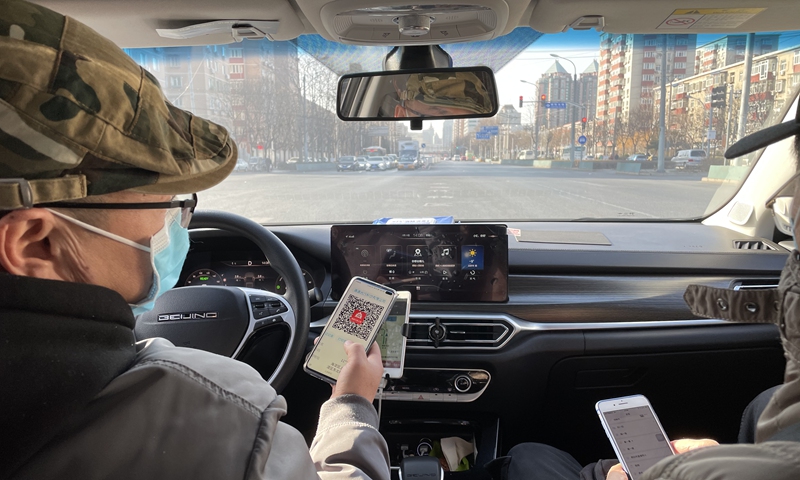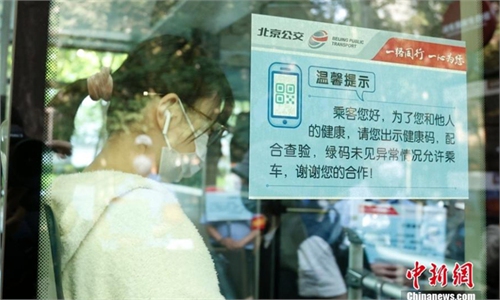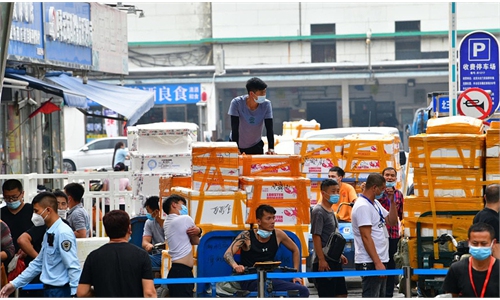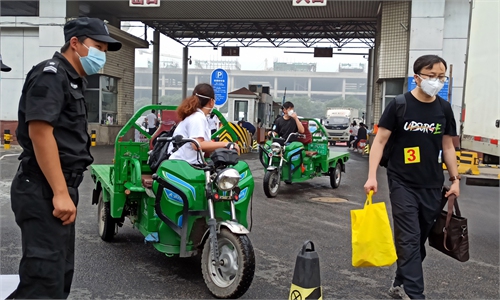
A passenger scans a health code provided by a car-hailing driver in Beijing on Monday, the first day that Beijing required car hailing services to register the health codes of passengers. Photo: Liu Caiyu/GT
Beijing's online health code checking system, Jiankangbao, was hit by cyber attacks from overseas during its usage peak on Thursday, authorities said at a press conference.
The system's maintenance team has effectively tackled the problem and the service was not affected.
The health code system saw similar cyber attacks during the Beijing 2022 Winter Olympic and Paralympic Games, but the situation was taken care of properly, local officials said at the conference, vowing to provide better cyber security services and safeguard the capital's epidemic prevention work.
The topic drew heated discussion on various social media platforms. The system has stored a huge amount of personal information and is key to the capital city's ongoing efforts to curb the virus, netizens pointed out on Weibo. The attacks may aim to "acquire private information of Beijing residents" and "jeopardize Beijing's epidemic prevention works and create chaos among the public," one netizen posted.
The Jiankangbao system was rolled out in 2020 after the initial COVID-19 outbreak. It is the official health status checking system for Beijing residents, providing a slew of services including health code, nucleic acid test result, and vaccination status.
To better ensure that people exposed to the virus do not mix with the public, the system grants yellow or red codes to those who have had contact with or shared travel history with infected people.
A health reminder will pop up if people have visited medium- or high-risk regions within the past 14 days, or if they have arrived from overseas.



